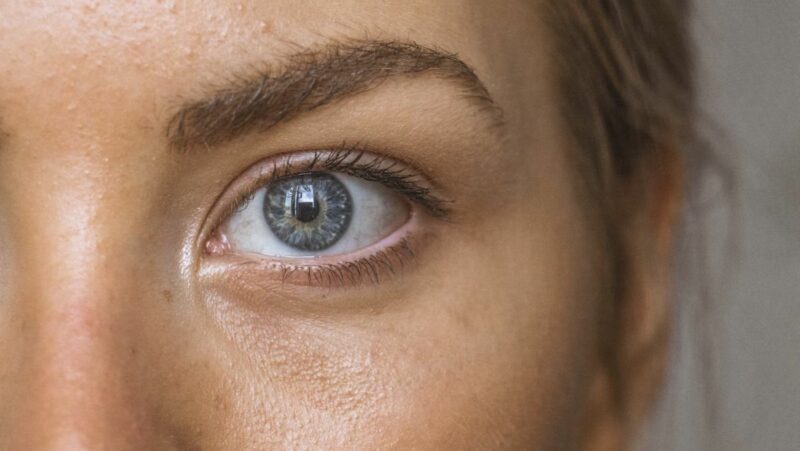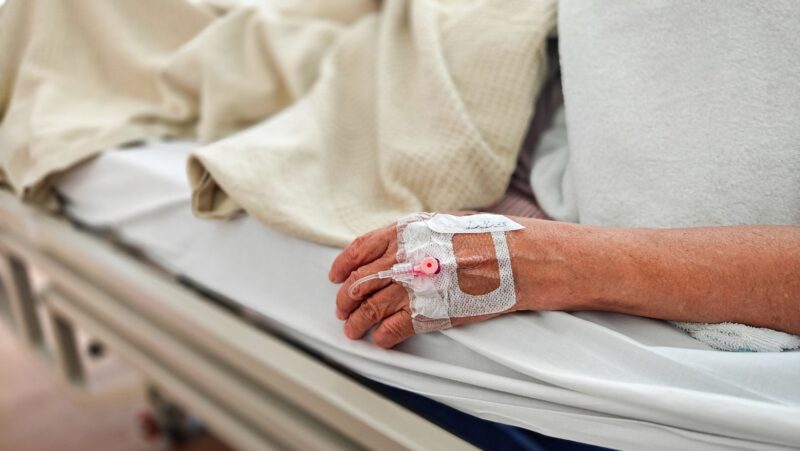
When it comes to skin health, lesions are one of the most common areas of concern. Not all skin lesions have potentially serious implications—some are benign and immaterial.
However, it’s important to be aware of the various types that may arise to identify any that may require medical attention or another form of care.
To that end, understanding which five types of skin lesions exist and what potential medications could be prescribed for them can provide a strong foundation for knowing when and how best to address your symptoms.
In this blog post, we’ll outline each type’s particularities so you’re better equipped when discussing these matters with a healthcare provider.
Identifying the Different Types of Skin Lesions
Skin lesions come in all shapes and sizes, and being able to identify them can be crucial for both medical and cosmetic reasons. There are several different types of skin lesions, each with its unique characteristics and symptoms.
For example, a papule is a solid, raised bump, while a vesicle is a small blister filled with fluid. Other types of skin lesions include pustules, nodules, and ulcers. Identifying the type of skin lesion is essential for proper treatment and identifying any underlying conditions that may be causing it.
Being aware of these different types of skin lesions can help you pinpoint any changes in your skin and seek medical attention if necessary.
Macules
Macules are quite common and can appear on the skin at any age. They are flat and often discolored spots that can range in size and color. While they are usually harmless, it is important to monitor your skin for any changes or new spots that may appear.
Macules can be caused by a variety of factors, including genetics, sun exposure, and certain medical conditions. If you have concerns about a macule on your skin, be sure to consult a dermatologist for proper diagnosis and treatment.
Taking good care of your skin and protecting it from harmful UV rays can help prevent the development of these spots. Overall, it is important to be aware of macules and any changes that occur on the skin to ensure that you maintain healthy skin for years to come.
Papules
Papules are small, solid, and raised bumps that can appear on your skin. They can be different colors, sizes, and shapes depending on the cause. Papules can be caused by various factors, such as skin conditions, infections, or allergies.
Some common examples of papules are warts, pimples, and insect bites. Though they may be harmless, papules can also be a sign of a more serious skin condition. It is crucial to identify the cause of the papules to get proper treatment.
So, if you notice any unusual bumps on your skin, it’s always best to consult with a dermatologist for a diagnosis and appropriate treatment.
Plaques
Plaques, whether they are used as awards or decor, have a way of capturing moments in time and preserving them for years to come. From a simple wooden plaque to an intricate crystal one, each one tells a story.
Artfully designed and personalized with thoughtful messages, plaques can commemorate significant events like the dedication of a building or the achievements of an outstanding employee.
They can also be treasured keepsakes that celebrate important milestones, like a wedding or graduation. No matter the occasion, plaques are a timeless way to recognize and cherish the people and events that matter most.
Nodules
Nodules are small bumps or growths that can develop for a variety of reasons on different parts of the body. They can range in size and shape and are often harmless. However, some nodules may indicate a more serious underlying condition, so it is important to monitor them closely and seek medical attention if necessary.
Nodules can form on organs such as the thyroid gland as well as on joints and bones. Even the skin can develop nodules, such as in the case of sebaceous cysts. Overall, while nodules may seem concerning, most of them are not cause for alarm and can be easily managed with proper care.
Vesicles
Vesicles – tiny, membrane-bound sacs that transport molecules within and between cells – are an integral part of cellular function. Without them, essential proteins and lipids would be unable to reach their destinations within the cell, leading to dysfunction and disease.
Scientists have identified a vast array of different types of vesicles, each serving a specific purpose in the cell. Some vesicles, for example, are specialized for transporting waste products out of the cell, while others help package and export proteins for use elsewhere in the body.
Despite their small size, vesicles play an enormous role in maintaining the health and well-being of the cells in our bodies.
Common Causes of Skin Lesions
Skin lesions are a common problem for people of all ages. There are a variety of factors that can cause these unsightly blemishes, including exposure to the sun, infections, and autoimmune disorders. Sun damage is one of the most common causes of skin lesions, especially in people who spend a lot of time outdoors.
Infection is another common culprit, with conditions like warts, acne, and eczema leading to the formation of unsightly bumps and discolored spots. Autoimmune disorders, such as lupus and psoriasis, can also cause skin lesions as the body’s immune system turns on itself.
No matter what the underlying cause may be, skin lesions can be both physically uncomfortable and emotionally distressing. If you’re dealing with these types of issues, it’s important to seek medical help to find effective treatment options.
Treatment Options for Skin Lesions
Dealing with skin lesions can be frustrating, especially if they are recurrent. Luckily, there are several treatment options available to help manage the condition. These options range from over-the-counter creams to prescription medications depending on the severity of the lesions.
One of the prescription medications that have been proven effective in treating certain types of skin lesions is Mupirocin. And now, to make things even better, there is a Mupirocin savings offer available to help you save money while still receiving the necessary treatment.
So if you’re struggling with skin lesions and looking for an effective solution, speak to your healthcare provider about whether Mupirocin is right for you and take advantage of the savings offer.
Home Remedies
Are you tired of constantly reaching for over-the-counter medications for minor ailments? It may be time to explore home remedies! These natural treatments have been passed down for generations and have been found to work wonders in some cases.
From using honey to soothe a sore throat to applying aloe vera on a sunburn, the options are endless. Plus, you’ll often find that these remedies are gentler on your body and wallet than traditional medicines.
So next time you’re feeling under the weather, consider trying out a home remedy before heading to the pharmacy.
Medical Treatments
Medical treatments have come a long way over the years. From simple remedies like herbs to advanced surgeries and medication, the options for treating illnesses and injuries have expanded greatly.
Today, doctors have access to cutting-edge technology and innovative treatments that can improve the quality of life for patients. Whether it’s chemotherapy for cancer, antibiotics for infections, or physical therapy for injuries, medical treatments have the power to heal and restore.
While the science of medicine is constantly evolving, one thing remains the same: the importance of seeking professional medical attention. By working with a skilled healthcare provider and following recommended treatments, patients can achieve the best possible outcomes for their health.
Possible Medications for Skin Lesions
Finding the right medication for skin lesions can be a daunting task, but fortunately, there are several options available. These medications can help to alleviate discomfort and irritation and promote healing of the affected area. One such option is Mupirocin, a topical medication that is effective in treating bacterial skin infections.
And now, thanks to the Mupirocin Savings Offer, relief from the pain of skin lesions is not only attainable but affordable as well. With this offer, patients may be eligible for savings on their prescription for Mupirocin ointment.
So if you’re struggling with skin lesions, talk to your doctor about whether Mupirocin could be the right medication for you.
When to See a Doctor for Skin Lesions
Our skin is the largest organ of our bodies, and it is exposed to environmental factors, injuries, and infections every day. Skin lesions are one of the most common conditions people face, and they can be a result of various reasons. Most skin lesions are usually harmless and go away on their own, but sometimes it could also be an indication of a more serious condition.
That’s why it’s important to know when to see a doctor for skin lesions. If the lesion is growing, bleeding, itching, or changing in any way, it’s best to consult a dermatologist. A dermatologist can examine the skin lesion, determine the underlying issue, if any, and suggest the best course of treatment.
Remember, when it comes to protecting our skin, prevention is key. Don’t hesitate to see a doctor if you notice any concerning changes to your skin.
In Conclusion
In conclusion, it is important to identify the different types of skin lesions to determine what the cause may be and how best to treat them. Macules, papules, plaques, nodules, and vesicles are all common skin lesions that have different characteristics.
While some may be due to an allergic reaction or a bug bite, others could be more serious such as skin cancer or psoriasis. Home remedies such as aloe vera can help with inflammation, while other medical treatments include antibiotics or topical creams.
Several medications can also be prescribed to treat these lesions, depending on the severity. No matter what type of lesion you have noticed on your skin, it is always best to seek professional help when necessary.
When in doubt, consult with a doctor for a proper diagnosis and treatment options tailored just for you!












